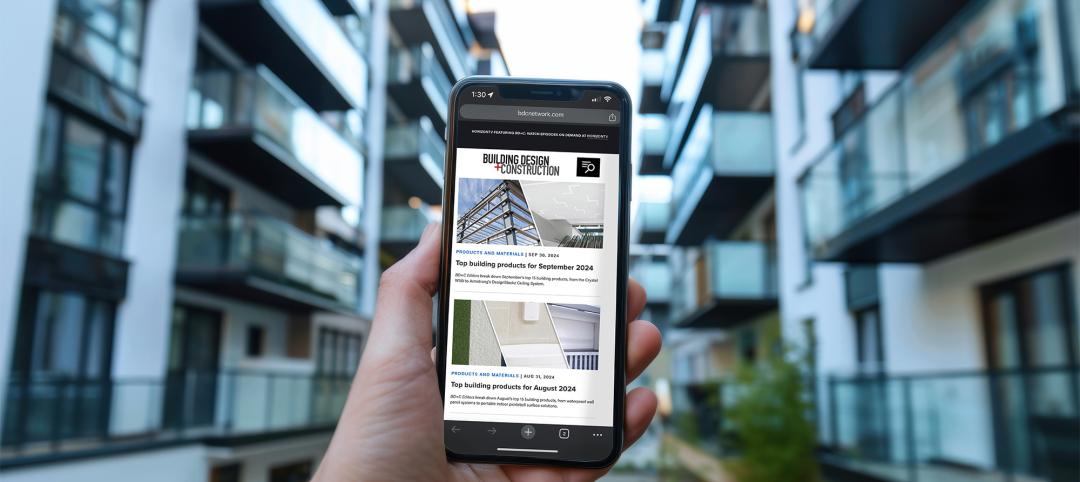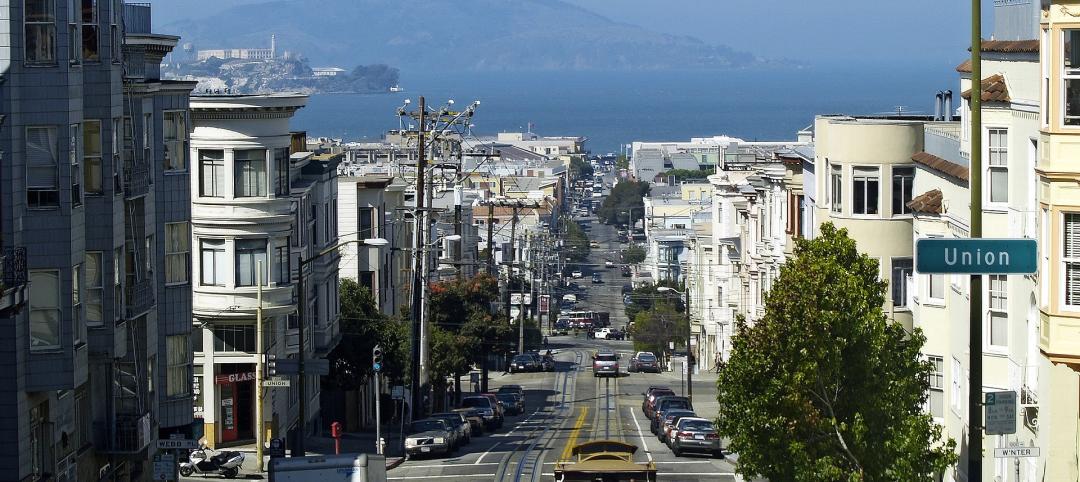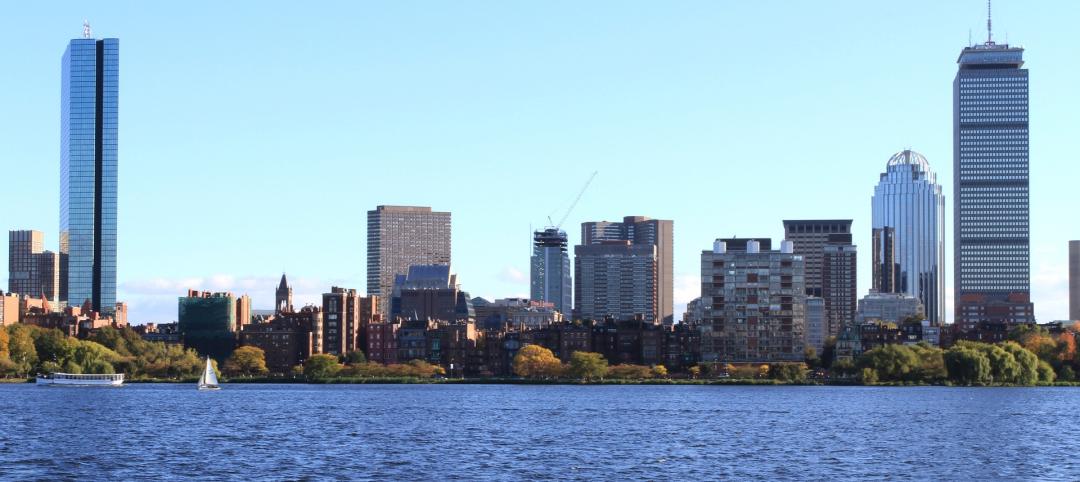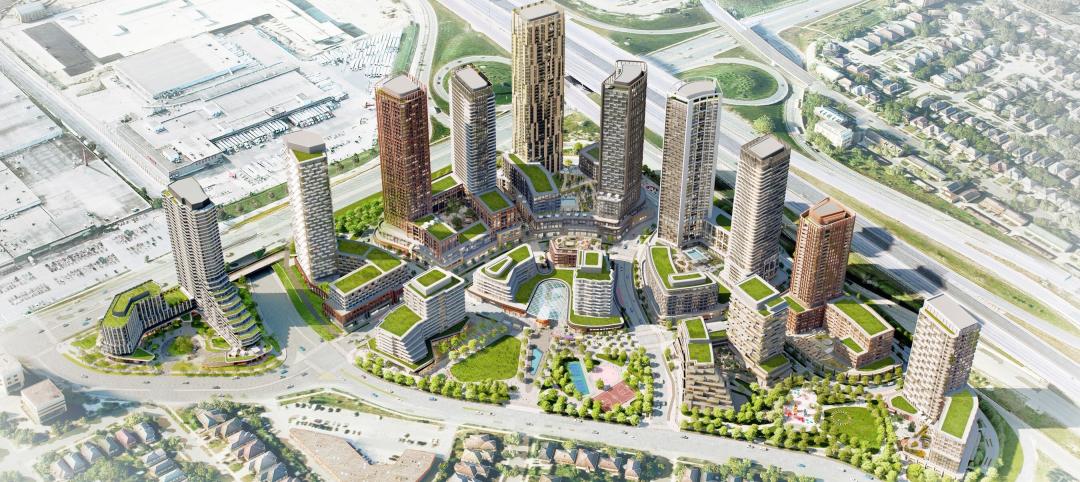Few people would have taken a look at a century-old cigar box factory with crumbling masonry and rotted wood beams and envisioned stylish loft condos, but Miles Development Partners did just that. And they made that vision a reality at Box Factory Lofts in historic Ybor City, Fla.
Once the largest cigar box plant in the world, the Tampa Box Company produced boxes of many shapes and sizes, specializing in pure-cedar containers. Its 200 or so workers also crafted coffee, tea, and spice cans from the finest Florida cedar, Cuban mahogany, mahagua, and other hardwoods. By the 1960s, though, the factory was relegated to being used as a storage facility.
In 2004, Miles Development Partners, Atlanta, purchased the 68,000-sf building and began converting it into 53 two-story lofts, ranging from 950 to 1,700 sf. Though the building had its share of deficiencies, its configuration and location were major pluses.
“The number one advantage was the courtyard,” said Jason Perry, Miles's VP of development. The hidden, interior open-air courtyard was once a favorite break spot for factory workers. After the renovation, it is still a place to relax—the long, rectangular space has been converted to a landscaped pool area. In addition, the size and shape of the building allowed the developer to build units on both sides of the interior hallway, helping to make the economics viable, Perry said.
The project's designers, Atlanta's Lord, Aeck & Sargent Architecture, were sensitive to the character-defining features of the historic building. Ybor City, once a thriving cigar manufacturing area, is a National Historic Landmark District. Located near downtown Tampa, the neighborhood has brick-paved streets and wrought-iron lampposts, with a mixture of detail-rich Mediterranean and classic architecture. The area is a popular destination for locals and tourists who visit its many restaurants, nightclubs, and bars. The Box Factory lies on the southern fringe of the historic district.
The development team worked closely with the Barrio Latino Commission (the local architectural review body) for guidance on design features to ensure that the final product preserved the historic fabric of the district and maintained its architectural integrity. This relationship helped pave the way for rezoning the property from “industrial” to “community commercial,” allowing the structure's conversion to condos.
The commission also provided inspiration for some of the design features. For instance, the developer needed to raise the roof and build a second-story in order to add enough units to make the project financially feasible, but the commission was concerned about the impact on historic appearance. The commission convinced the developer to set back the second floor so that it is not visible from the street. The commission also inspired interior features such as the restoration of original walls, high ceilings, exposed ductwork and conduits, and acid-stained concrete floors.
The preservation work included careful restoration of existing masonry walls, with every joint needing to be regrouted. Workers also removed several layers of paint from the exterior in order to identify and match the original building color. Deteriorated windows were replaced with long-lasting, insulated windows similar in appearance to the originals.
With little on-street parking available, the developer dedicated about one-third of the first floor to indoor parking, allotting one space per bedroom.
The developers took pains to retain many of the building's architectural details. Existing nine-foot-tall windows were restored and original wooden beams were reclaimed and integrated into the design of the lofts. Each unit has 15-foot ceilings in the living room area.
As restoration work progressed, some of the building's flaws were uncovered. One section of foundation was sinking, and a corner of the building had to be rebuilt. Many of the wood beams had more rot and damage than had been expected. “We ended up spending all of our contingency funds, but that was sort of expected,” Perry said. The two-year reconstruction cost was $7.1 million, with the total cost exceeding $11 million.
As of early August, about 65% of the units had been sold, according to Perry. Prices range from $179,000 to $325,000.
City officials hope that the Box Factory Lofts will spur additional high-density residential projects in Ybor City. The project has already spurred some immediate neighborhood enhancements, such as the construction of sidewalks and the addition of on-street parking along Second Avenue.
“This daring redevelopment is a striking example of the rebirth of Ybor City and the Tampa area in general,” said Walker Johnson, FAIA, Johnson Lasky Architects, Chicago, one of the judges for this year's BD+C Reconstruction Awards.
The project demonstrates that a bold vision can re-make even a decaying factory into a desirable, hip residential space with modern amenities, while retaining sensitivity to a storied past.
Related Stories
Products and Materials | Oct 17, 2024
5 multifamily tech products for your next project
Multifamily housing and technological upgrades go hand-in-hand. From the rise in electric vehicle charging needs to the sophistication of smart home accessories, tech products are abound in the multifamily space.
Codes and Standards | Oct 16, 2024
North Carolina’s code policies likely worsened damage caused by Hurricane Helene
The North Carolina Legislature’s rejection of building code updates likely worsened the damage caused by Hurricane Helene, code experts say. Over the past 15 years, lawmakers rejected limits on construction on steep slopes, which might have reduced the number of homes destroyed by landslides.
MFPRO+ News | Oct 16, 2024
One-third of young adults say hurricanes like Helene and Milton will impact where they choose to live
Nearly one-third of U.S. residents between 18 and 34 years old say they are reconsidering where they want to move after seeing the damage wrought by Hurricane Helene, according to a Redfin report. About 15% of those over age 35 echoed their younger cohort’s sentiment.
Student Housing | Oct 9, 2024
University of Maryland begins work on $148 million graduate student housing development
The University of Maryland, in partnership with Campus Apartments and Mosaic Development Partners, has broken ground on a $148.75 million graduate student housing project on the university’s flagship College Park campus. The project will add 741 beds in 465 fully furnished apartments.
MFPRO+ News | Oct 9, 2024
San Francisco unveils guidelines to streamline office-to-residential conversions
The San Francisco Department of Building Inspection announced a series of new building code guidelines clarifying adaptive reuse code provisions and exceptions for converting office-to-residential buildings. Developed in response to the Commercial to Residential Adaptive Reuse program established in July 2023, the guidelines aim to increase the viability of converting underutilized office buildings into housing by reducing regulatory barriers in specific zoning districts downtown.
Mixed-Use | Oct 7, 2024
New mixed-use tower by Studio Gang completes first phase of San Francisco waterfront redevelopment
Construction was recently completed on Verde, a new mixed-use tower along the San Francisco waterfront, marking the end of the first phase of the Mission Rock development. Verde is the fourth and final building of phase one of the 28-acre project that will be constructed in several phases guided by design principles developed by a design cohort led by Studio Gang.
MFPRO+ News | Sep 24, 2024
Major Massachusetts housing law aims to build or save 65,000 multifamily and single-family homes
Massachusetts Gov. Maura Healey recently signed far-reaching legislation to boost housing production and address the high cost of housing in the Bay State. The Affordable Homes Act aims to build or save 65,000 homes through $5.1 billion in spending and 49 policy initiatives.
MFPRO+ News | Sep 23, 2024
Minnesota bans cannabis smoking and vaping in multifamily housing units
Minnesota recently enacted a first-in-the-nation statewide ban on smoking and vaping cannabis in multifamily properties including in individual living units. The law has an exemption for those using marijuana for medical purposes.
The Changing Built Environment | Sep 23, 2024
Half-century real estate data shows top cities for multifamily housing, self-storage, and more
Research platform StorageCafe has conducted an analysis of U.S. real estate activity from 1980 to 2023, focusing on six major sectors: single-family, multifamily, industrial, office, retail, and self-storage.
Mixed-Use | Sep 19, 2024
A Toronto development will transform a 32-acre shopping center site into a mixed-use urban neighborhood
Toronto developers Mattamy Homes and QuadReal Property Group have launched The Clove, the first phase in the Cloverdale, a $6 billion multi-tower development. The project will transform Cloverdale Mall, a 32-acre shopping center in Toronto, into a mixed-use urban neighborhood.
















